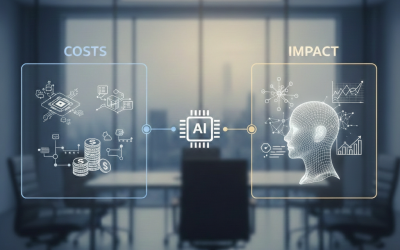Educational research hub for healthcare AI innovators
Simplifying compliance and privacy standards with clear insights and resources
Who This Is For
AI compliance isn’t one-size-fits-all. Whether you’re building AI, adopting it, or investing in it, the regulatory landscape and your responsibilities can vary widely. That’s why our resources are designed to support the real-world learning needs of startups, clinics, product teams, compliance professionals, and healthtech investors operating at the frontier of healthcare innovation.
Startups Building AI for Healthcare
You are building AI in healthcare, and from MVP to market, startups need to consistently bake in privacy, ethics, and documentation practices right from the begining.
Our resources are carefully designed to help you better understand the compliance landscape and proactively navigate the challenges, risks, and pitfalls that can slow down funding and delay partnerships
Clinics & Practitioners Adopting AI Tools
You’re not building AI, you’re bringing it into your practice. That means you’re still accountable for protecting patient data, managing risks, and ensuring ongoing trust with the people you serve.
Know what to ask, what to expect, and how to stay fully aligned with healthcare compliance requirements as new regulations, obligations, and standards continue to evolve.
Compliance Officers & Engineering Teams
Compliance, Engineers, and Security teams face increasing pressure to meet privacy-by-design, explainability, and audit readiness, while helping clinics and startups integrate AI tools into real-world workflows.
Our resources translate complex frameworks into clear, actionable steps so practitioners can build and deploy AI responsibly while supporting those on the frontlines of healthcare innovation.
Our Goal
“We exist to ensure AI reaches its full potential in healthcare safely and ethically”
AI can transform patient care, diagnostics, and operations in ways we’ve never seen before. But without trusted security, privacy, and compliance, that potential risks being delayed, or worse, causing real harm.
At AI Healthcare Compliance, our mission is to ensure that compliance isn’t a bottleneck—it’s the foundation. We’re not a regulatory body or legal advisory service. Instead, we exist to empower healthcare innovators with educational clarity and foundational guidance, so they can better understand complex regulations like HIPAA, GDPR, and the EU AI Act.
By demystifying the core principles of healthcare compliance, we help builders, clinicians, and product teams move forward with confidence, equipped to ask the right questions, not just check boxes.
The upside of healthcare AI is massive…
Key Regulations That Impact Healthcare AI
AI in healthcare isn’t unregulated — it’s shaped by a mix of privacy laws, security standards, and emerging AI-specific frameworks. Whether you’re building diagnostic tools, adopting clinical AI, or investing in digital health, these are the most critical regulations you should understand:
-
HIPAA (USA) – Regulates how protected health information (PHI) must be stored, shared, and processed — including by AI tools.
-
GDPR (EU) – Imposes strict rules on health data, consent, profiling, and automated decision-making in AI systems.
-
EU AI Act (EU) – Classifies AI systems by risk level (e.g., high-risk for diagnostic tools) and mandates transparency, oversight, and compliance documentation.
-
PIPEDA & PHIPA (Canada) – Govern how clinics and vendors handle patient data in Canadian healthcare settings.
-
SOC 2 & ISO/IEC 27001 – Essential for AI vendors integrating with hospitals or cloud platforms—focus on trust, security, and operational controls.
-
ISO/IEC 42001 – The first AI-specific management standard, designed to ensure AI governance, accountability, and lifecycle oversight.
-
NIST AI RMF (USA) – A voluntary U.S. framework for identifying, assessing, and managing risks in AI systems used in healthcare.
Our Research Project
We’re exploring some of the most urgent challenges in healthcare AI, focusing on risks that directly affect trust, safety, and equity in patient care. As AI tools become more integrated into clinical decision-making, it’s critical to understand and address their limitations before they impact real-world outcomes. Our current research aims to address the following questions, each targeting a key barrier to building reliable, fair, and explainable AI systems for healthcare.
1. How new and existing regulations apply to healthcare AI?
Governments worldwide are introducing new rules for artificial intelligence, including the EU AI Act, U.S. FDA guidance, and Canada’s emerging frameworks. We are studying how these evolving regulations intersect with healthcare-specific laws like HIPAA, PHIPA, and GDPR, and what compliance challenges clinics, startups, and developers will face.
2. How can we detect and prevent hallucinations in generative AI?
Generative AI models can produce outputs that are factually incorrect or entirely fabricated. In healthcare, these “hallucinations” could lead to misinformation in patient records, diagnostic errors, or flawed clinical recommendations. We’re exploring detection techniques and safeguards to reduce these risks.
3. How do population and language biases affect healthcare AI performance?
AI models trained on limited or non-representative datasets may perform poorly for certain demographic groups or languages. This can result in unequal care quality and worsen health disparities. Our research examines methods to identify, measure, and mitigate these biases.
4. How can we improve model decision tree explainability for healthcare AI?
Clinicians, patients, and regulators need to understand how AI arrives at its decisions—especially for high-stakes medical applications. We’re studying approaches to make AI decision-making more transparent, so users can trust and verify model outputs.
AI Compliance Blog & News
Our blog is where we break down the latest in AI compliance, privacy, and ethical standards for healthcare. From updates on regulations like the EU AI Act and HIPAA to practical checklists, case studies, and risk insights, each post is designed to help innovators, clinicians, and product teams stay informed—and make smarter, safer decisions when building or adopting AI in healthcare.
Effectiveness of AI in Healthcare: Costs vs Impact
As healthcare systems face mounting pressure to deliver high-quality care with dwindling resources, Artificial Intelligence (AI) is often presented as the ultimate solution. However, for compliance officers and C-suite executives, the "effectiveness" of AI is a...
Weekly News and Updates (Jan 1-9, 2026)
Between 1st and 9th January 2026, the first full week of the year marks a significant shift from theoretical frameworks to operational infrastructure in AI healthcare governance. Key developments include the UK’s closing of its “AI Growth Lab” consultation, the FDA’s...
Weekly News and Updates (Dec 12 – 19, 2025)
Between 12–19 December 2025, the regulatory landscape for AI in healthcare shifted decisively toward national-level consolidation and operational security: the U.S. White House issued a landmark Executive Order to centralize AI policy and preempt state-level...
Weekly News and Updates (Nov 29 – Dec 12, 2025)
Between 29 November and 12 December 2025, three major jurisdictions released concrete, actionable regulatory documents demonstrating a rapid shift from high-level principles to mandatory operational controls. The U.S. Department of Health and Human Services (HHS)...
Weekly News and Updates (Nov 22 – 28, 2025)
Between 22–28 November 2025, global regulators accelerated the shift from high-level principles to mandatory operational controls, particularly in Canada, which launched its first public AI Register detailing hundreds of government AI systems. The EU continued...
Weekly News and Updates (Nov 8 – 21, 2025)
Between 8-21 November 2025 regulators and international bodies emphasised moving from principles to practice: the EU launched COMPASS-AI to operationalise safe clinical AI; the UK (MHRA) published AI Airlock pilot outputs and announced AI drug-safety projects; the FDA...






